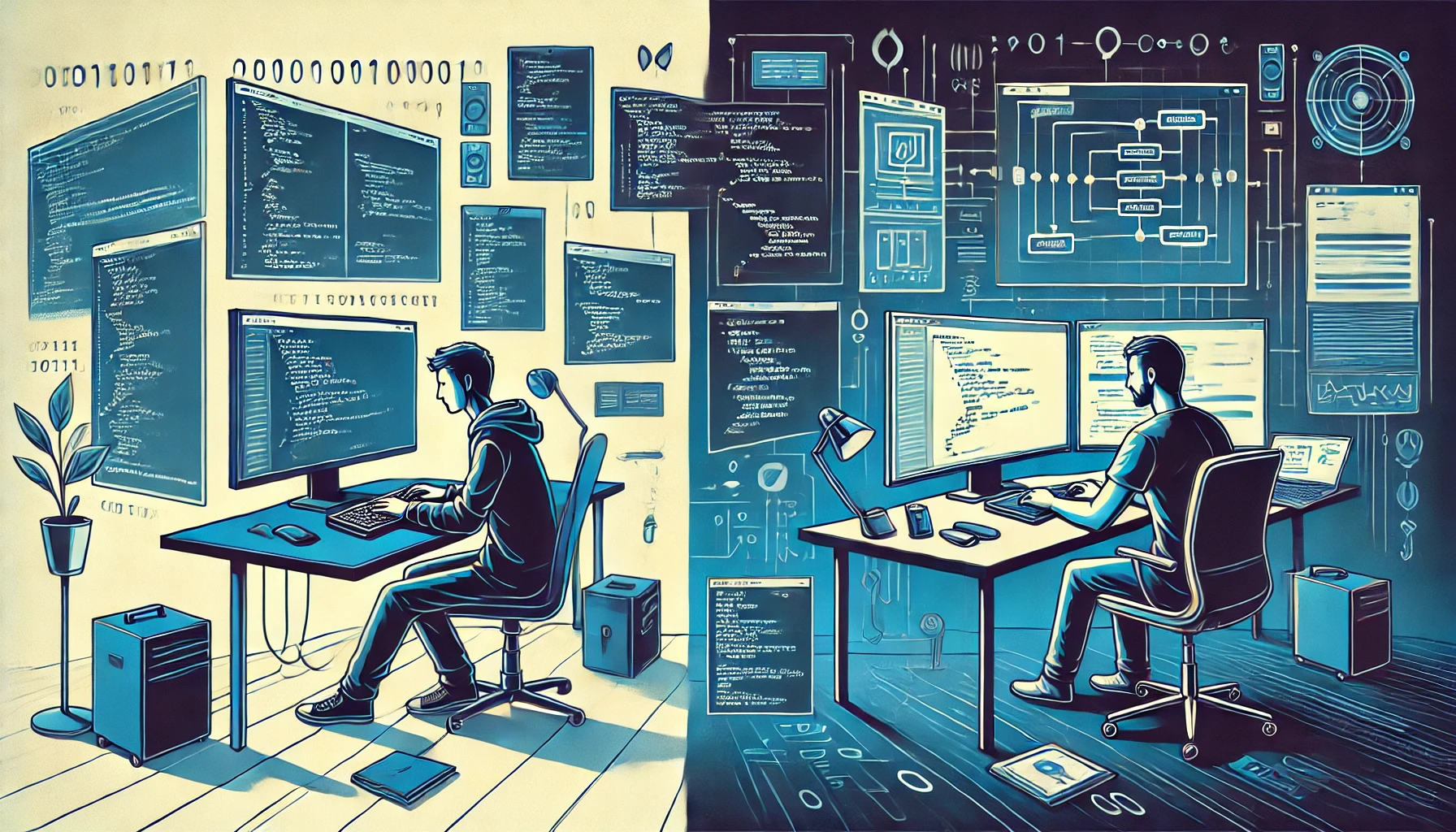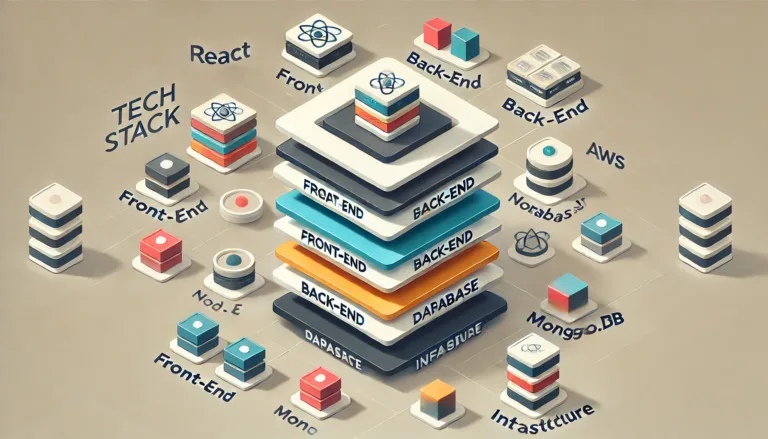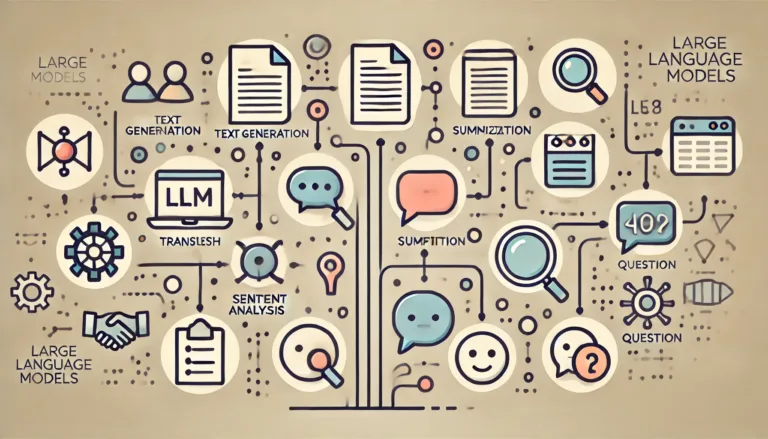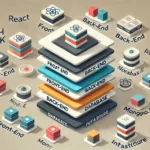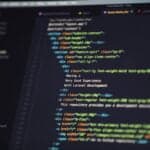Introduction
In the realm of software development, the terms “programming” and “coding” are often used as if they mean the same thing. This common misconception can lead to confusion, particularly for those just stepping into the tech industry. While both are crucial for creating software, they represent different stages and skills in the development process.
Understanding the difference between coding and programming is essential for aspiring developers, as it can shape their learning paths and help them set realistic career goals. Whether you’re looking to become a software engineer, a web developer, or just explore this fascinating field, being clear on these distinctions is the first step toward success.
Thesis Statement: Though often used interchangeably, programming and coding serve distinct roles in the software development process. Coding involves the translation of human commands into a language that machines understand, while programming encompasses the broader task of designing, planning, and maintaining complete software systems.
Definitions
What is Coding?
Coding is the act of translating human instructions into a machine-readable format using a specific programming language. It’s the most fundamental step in the software creation process, where coders use various syntactical rules to construct scripts, commands, or functions that the computer can execute.
The focus in coding is primarily on the syntax and structure of the chosen language, whether it’s Python, JavaScript, or C++. Coders take logical instructions from a higher-level plan and implement them in a way that a machine can process without errors. While coding requires a good grasp of a particular language’s rules and nuances, it is often limited to solving specific tasks, such as automating a calculation or creating a simple webpage feature.
What is Programming?
Programming is a broader and more intricate process that goes beyond simply writing lines of code. It involves planning, designing, and problem-solving to create complete software solutions that are both functional and efficient. Programming encompasses not only coding but also understanding the bigger picture of how different parts of a software application interact.
The role of a programmer is to outline the logical flow of the entire software, determine how to handle potential issues, and ensure the system architecture is robust. This requires knowledge of algorithms, data structures, and software design principles. Additionally, programmers are responsible for testing, debugging, and maintaining software systems, making their role more dynamic and multi-faceted compared to coders.
Key Differences Between Programming and Coding
At first glance, programming and coding may seem similar because both involve writing instructions that computers can execute. However, they represent different levels of involvement and expertise within the software development process. Coding is about translating a set of predefined tasks into a machine-readable format, while programming focuses on creating entire software solutions that are efficient, maintainable, and scalable. Understanding these differences is crucial for distinguishing between the two roles and identifying which skill set aligns more closely with your career goals.

1. Scope and Purpose
- Coding:
Coding has a narrower scope, primarily focused on translating human instructions into machine-executable commands. The goal is to implement specific functionalities, such as creating a login form or developing a script that automates a repetitive task. Coders work on a smaller scale, often implementing isolated features within a larger application. - Programming:
Programming has a broader and more holistic scope, encompassing the entire software lifecycle, from initial planning and design to implementation, testing, and maintenance. The purpose of programming is to develop a complete software solution, considering aspects like performance optimization, scalability, and user experience. Programmers must think beyond individual tasks and take a strategic view of how all components work together.
2. Skills and Knowledge Required
- Coding:
Coders need to master the syntax, commands, and rules of the programming languages they use. While deep theoretical knowledge isn’t mandatory, a strong grasp of language-specific quirks and the ability to debug common errors is essential. Coders typically focus on writing clean, error-free code that accomplishes a specific function. - Programming:
Programmers require a more comprehensive skill set that goes beyond language proficiency. They must understand algorithms, data structures, software architecture, and design principles. Problem-solving and critical thinking skills are key, as programmers need to devise efficient solutions for complex problems. Additionally, programmers are responsible for writing code that not only works but is also optimized for future scalability and maintenance.
3. Tools and Techniques
- Coding:
Coders often use basic text editors or simple integrated development environments (IDEs) such as Notepad++, Sublime Text, or Visual Studio Code. Their primary focus is on writing, testing, and debugging the code they produce, with an emphasis on simplicity and efficiency. - Programming:
Programmers work with a wider array of sophisticated tools and techniques. They use advanced IDEs like IntelliJ IDEA or PyCharm for complex projects, version control systems like Git to manage code changes, and project management tools like JIRA to track development progress. Additionally, programmers employ various debugging tools, performance profilers, and testing frameworks to ensure that the software performs as expected and is free from critical flaws.

Detailed Breakdown of Each Aspect
While programming and coding share some foundational similarities, the deeper breakdown of their roles reveals how distinct they truly are. By understanding how they differ in purpose, approach, and problem-solving, you can gain a clearer picture of the unique contributions each makes to software development.
1. Purpose
- Coders work primarily on implementing predefined tasks. Their goal is to take specific requirements—like creating a function to sort a list of names or developing a script that automates an email notification—and translate them into a sequence of commands that a machine can execute. This process involves meticulous attention to detail and precision, ensuring that every line of code adheres to the syntax and structural rules of the language being used. While coders are instrumental in converting ideas into functional code, their focus is mainly on the individual pieces rather than the overall software solution.
- Programmers, on the other hand, engage with broader, system-level problems. Their purpose is to create a cohesive, functional software system that not only works but is also efficient, scalable, and maintainable. This requires a thorough understanding of how various components interact and how to optimize them to achieve the desired outcome. For example, if a client needs an e-commerce platform, a programmer would be responsible for planning the entire system architecture—from the database design to the integration of payment gateways and user authentication mechanisms—before coding even begins. Their purpose is not just to make a specific feature work, but to ensure the entire application operates seamlessly as a unified whole.

2. Approach and Methodology
- Coding:
Coders follow a direct approach, focusing on translating requirements into machine-executable code line by line. They typically work with clearly defined instructions and focus on implementing features using the syntax and commands of the chosen programming language. There’s less emphasis on high-level planning; instead, the approach revolves around making sure each line of code does exactly what it’s supposed to do without causing errors. For example, when tasked with writing a script that extracts data from a file, a coder would break down the task into discrete steps: opening the file, reading its contents, and printing specific values to the console. - Programming:
Programmers use a more strategic approach that involves conceptual planning and logical structuring before they begin writing any code. They create flowcharts, wireframes, and diagrams to map out the system’s logic and identify potential issues early in the design phase. For instance, before building an inventory management system, a programmer might draft a detailed flowchart outlining how data will move between different modules and how various components will interact. This holistic planning helps in structuring the software to handle future requirements and potential changes, ensuring flexibility and robustness.

3. Problem-Solving and Creativity
- Coding:
Coders are usually tasked with solving specific implementation problems. This could be anything from fixing a bug in a function to optimizing a snippet of code for better performance. While this requires problem-solving skills, the scope is often narrower, focusing on resolving issues within the context of a single feature or function. Coders work creatively within the constraints of a particular programming language and are adept at finding solutions that make their code run efficiently and accurately. - Programming:
Programming involves a higher degree of creativity and complex problem-solving. Programmers need to devise solutions for multi-faceted problems that may span across different layers of the software stack, considering not just immediate functionality but also long-term maintainability, scalability, and user experience. For example, when designing a content management system, a programmer might face challenges like ensuring that the system can support multiple users editing content simultaneously without data conflicts. Solving such problems requires innovative thinking, as there are often multiple approaches, each with its own trade-offs. A programmer’s creativity comes into play when determining the best way to balance performance, usability, and code simplicity while keeping future development needs in mind.

Examples to Illustrate the Differences
Concrete examples often help solidify abstract concepts, and this holds true when differentiating between coding and programming. Below, we’ll explore how the roles and responsibilities vary with practical examples that highlight the unique scope and complexity of each.
Coding Example
Let’s say you need to automate a repetitive task: extracting email addresses from a large text file and saving them into a separate file. A typical coder’s approach would be to write a short Python script to accomplish this task. Here’s how it might look:
# Open the text file in read mode
with open("data.txt", "r") as file:
content = file.read()
# Extract email addresses using a simple regular expression
import re
email_addresses = re.findall(r"[a-zA-Z0-9._%+-]+@[a-zA-Z0-9.-]+\.[a-zA-Z]{2,}", content)
# Save the extracted emails to a new file
with open("emails.txt", "w") as output_file:
for email in email_addresses:
output_file.write(email + "\n")
print("Email extraction complete!")In this case, the coder’s job is straightforward: implement a script that reads a file, applies a regular expression to find email addresses, and writes the results to a new file. The focus is on producing clean, syntactically correct code that performs a defined function with precision and clarity.
Programming Example
Now, consider a more complex task: building a complete User Account Management System. This involves multiple layers of planning, including defining the data flow, database design, and ensuring security protocols are in place. Here’s what a typical programmer’s workflow would look like:
- System Architecture Design:
- Create a flowchart outlining how the system will handle user registration, login, password management, and role-based access control.
- Plan the database schema to store user details, such as username, password (hashed for security), roles, and user activity logs.
- Backend Logic Development:
- Write functions for creating new user accounts, validating login credentials, managing password resets, and updating user roles.
- Implement security features, such as password hashing and secure session management.
- Integration of Components:
- Develop an API to connect the frontend and backend components.
- Implement integration testing to ensure that all parts of the system interact seamlessly.
- Testing and Maintenance:
- Perform unit and integration testing to validate each function and ensure there are no security loopholes.
- Create a plan for regular updates and bug fixes as user requirements evolve.
This example demonstrates how programming requires a strategic approach, balancing multiple aspects such as user interface, data management, and security. The end goal is a scalable, maintainable system that operates smoothly as a whole.
The Overlap: When Coding and Programming Converge
While coding and programming are distinct in their focus and scope, they are also deeply interdependent. In many cases, the line between the two blurs, especially in roles that require a mix of implementation and system-level thinking.
For example, in smaller projects like creating a personal website or a simple mobile app, a single individual often handles both coding and programming tasks. They plan the project, write the code, test it, and deploy the final product. This scenario requires wearing both hats—thinking like a programmer to structure the project and like a coder to write functional code.
Another instance of convergence is seen in full-stack development. Full-stack developers work across both the front end (client-side) and back end (server-side) of web applications, blending the tasks of a coder (e.g., implementing visual elements with HTML/CSS) and a programmer (e.g., designing database interactions and server logic). They need to switch between roles seamlessly, depending on the project stage and requirements.
Ultimately, coding and programming are two sides of the same coin. While coding forms the foundation, programming shapes the vision and structure. The ability to navigate both skill sets is highly valued in today’s tech landscape, making the distinction important but not absolute.
Choosing Between Coding and Programming as a Career Path
When deciding between a career in coding or programming, it’s important to consider your strengths, interests, and long-term career goals. While both paths are essential in the tech industry, they require different skills and mindsets.
Insights for Career Selection
- Coding is ideal for individuals who enjoy working on specific tasks and implementing detailed instructions. If you have a knack for solving straightforward problems, troubleshooting code, and enjoy seeing immediate results from your efforts, coding might be the right path for you. It’s also a great entry point for those looking to break into the tech industry quickly, as it typically requires a shorter learning curve and a focus on mastering specific languages like HTML, Python, or JavaScript.
- Programming, on the other hand, suits those who prefer to engage in larger-scale problem-solving and strategic planning. If you enjoy designing systems, understanding complex interactions between various components, and solving higher-level challenges, programming would be a better fit. This role demands a more extensive educational background, typically involving a deeper understanding of algorithms, data structures, and software architecture.
Skills and Competencies Required
- Coders need:
- Proficiency in one or more programming languages (e.g., Python, JavaScript, or Ruby).
- Strong attention to detail for writing and debugging code.
- Familiarity with basic coding tools and environments (e.g., IDEs, text editors).
- Ability to focus on specific tasks and follow clear instructions.
- Programmers require:
- A deep understanding of software design and architecture.
- Proficiency in multiple programming languages and technologies.
- Strong problem-solving skills and logical thinking.
- Experience with project management, version control, and advanced debugging.
- The ability to plan, design, and implement entire software systems.
Future Prospects and Roles
- Coders can start in roles like Junior Developer, Web Developer, or Quality Assurance Tester. With experience, they can move into more specialized positions, such as Front-end Developer or Automation Specialist. Coders also have the flexibility to explore freelance or remote work due to the highly task-oriented nature of their role.
- Programmers have a wider range of advanced career options, including Software Engineer, Systems Architect, and Project Manager. As programming encompasses a broader skill set, programmers are better positioned to move into leadership roles or to transition into specialized fields like Machine Learning Engineer or DevOps Engineer. With experience, they can also pursue positions as CTO (Chief Technology Officer) or Technical Lead.
Ultimately, the choice depends on whether you see yourself focusing on implementation or on designing complete software solutions. Both paths are crucial, and the demand for skilled professionals in both coding and programming is expected to remain strong in the coming years.
Conclusion
In essence, while coding and programming are related, they are not the same. Coding is a critical subset of programming, focused on translating instructions into a machine-readable format, while programming involves a much larger scope that includes system design, planning, and maintenance. Coders ensure that individual features work correctly, while programmers ensure that entire software solutions are robust and scalable.
For anyone starting in tech, understanding these distinctions can help guide your learning path and career choices. Coders can build a solid foundation in specific programming languages and quickly enter the job market. Programmers, however, should aim to develop a deeper understanding of complex topics like algorithms and system architecture, setting themselves up for more advanced roles in software development.
Recommendations for Further Learning:
- For Aspiring Coders:
- Codecademy: Learn to Code for Free
- Eloquent JavaScript by Marijn Haverbeke
- freeCodeCamp: JavaScript Algorithms and Data Structures
- For Aspiring Programmers:
- Clean Code: A Handbook of Agile Software Craftsmanship by Robert C. Martin
- The Pragmatic Programmer: Your Journey to Mastery by Andrew Hunt and David Thomas
- MIT OpenCourseWare: Introduction to Computer Science and Programming
By choosing the right learning resources and understanding the unique aspects of each role, you can set yourself up for success in the tech industry, whether you decide to become a proficient coder or a skilled programmer.
References and Further Reading
- Revelo: Coder vs. Programmer – What’s the Difference?
- Fortune: Coding vs. Programming – What’s the Difference?
- Simplilearn: Coding vs. Programming
- FreeCodeCamp: The Differences Between Coding and Programming
- Indeed: Programming vs. Coding – How They Differ
- Clean Code: A Handbook of Agile Software Craftsmanship by Robert C. Martin
- The Pragmatic Programmer: Your Journey to Mastery by Andrew Hunt and David Thomas
- Codecademy: Learn to Code
- MIT OpenCourseWare: Introduction to Computer Science
FAQ: Frequently Asked Questions
1. Can I be a coder without being a programmer?
Yes, you can! Coding focuses on translating specific instructions into a computer-readable format and doesn’t necessarily require the broader problem-solving and design skills associated with programming. Many entry-level positions, such as Junior Developer or QA Tester, primarily involve coding tasks.
2. Is learning to code easier than learning to program?
Generally, yes. Coding usually involves learning the syntax and commands of a specific language, which can be picked up relatively quickly. Programming, however, involves a deeper understanding of algorithms, data structures, and system design, making it a more complex and comprehensive skill set to master.
3. What are the most popular programming languages for coders and programmers?
For coders, languages like HTML, CSS, and JavaScript are common for web development, while Python is popular for scripting and automation. Programmers often use languages like Java, C++, and Ruby, which are more suited for complex software development and system design.
4. Do I need a degree to become a coder or programmer?
Not necessarily. While a formal degree can be helpful, many coders and programmers are self-taught or have gained skills through coding bootcamps and online courses. For coding roles, a strong portfolio showcasing your coding projects can be more important than a degree. For programming roles, having a deep understanding of software engineering principles can sometimes require more structured learning.
5. Which career path has better long-term prospects: coding or programming?
Both have strong prospects, but programming tends to offer more opportunities for growth and advancement into senior technical or leadership roles. While coders can specialize in niche areas like front-end development or scripting, programmers have the flexibility to transition into roles like software architect, technical lead, or even CTO.


